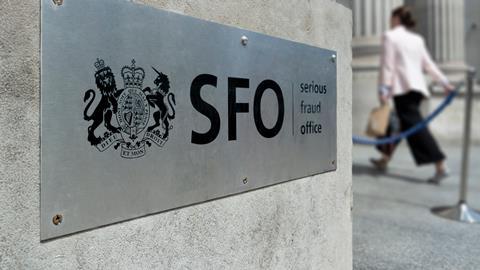Serious Fraud Office settles with ENRC on the courtroom steps – but the use of a confidential order to keep secret details of the deal raises questions about transparency and the public interest
This week, the Eurasian Natural Resources Corporation (ENRC) and the Serious Fraud Office (SFO) were due to face each other (again) in court for the latest chapter of the Kazakhstan-based mining giant’s quest for redress over a now-dropped SFO investigation.
The Rolls Building trial, which was listed for seven weeks before Mr Justice Bryan, did not start as scheduled. At around 12.30pm on Monday, the court was told that an agreed settlement was on the horizon and that a further 24-hour adjournment might help. The request was granted.
On Tuesday morning, on what would have been day two of the trial, Anna Boase KC, for ENRC (now a fully owned subsidiary of Eurasian Resources Group), told the judge: ‘We have agreement.’
A Tomlin Order, which will stay proceedings on agreed terms but allow parties to apply to the court to lift the stay or enforce the terms in the event of non-compliance, was agreed between all parties involved in the case – the ENRC, the SFO, former SFO officer and now partner at Cohen & Gresser John Gibson, and SFO investigator Tony Puddick. The settlement is confidential, with only some details made public; but though it signifies an end, of sorts, to this part of the multifaceted litigation, the ENRC v SFO battle continues.
This trial would have dealt with claims against the SFO, Gibson and Puddick for alleged breaches of confidence, misfeasance in public office and unlawful means conspiracy over sensitive information about the office’s investigation into the ENRC being leaked to media and third parties.
Both sides were predictably tight-lipped about the settlement. An SFO spokesperson said: ‘Throughout this case we robustly defended the claims. A confidential settlement has now been agreed.’ A spokesperson for ENRC said: ‘ENRC is pleased to report that a confidential settlement has been reached on the terms set out in the consent order.’
Considering the eye-watering sums involved, a settlement may be considered good news. But important questions remain about the use of a confidential order by a government agency funded from the public purse.
Helen Taylor, senior legal researcher at Spotlight on Corruption, said: ‘This settlement draws a line under a bruising legal battle for the SFO, but it comes after years of aggressive litigation by ENRC that has diverted scarce resources and depleted staff morale at the agency. It’s absolutely essential that there is transparency about the terms of this deal so the public can have confidence that our taxpayer-funded anti-corruption agency has acted in the public interest.’
Though part of the litigation has now been put to bed (unless the order is not complied with), the SFO still faces an upcoming trial, which has not yet been listed, over how much it owes ENRC following Mr Justice Waksman’s judgment in December 2023. That dealt with causation and loss claimed by ENRC for unnecessary work, legal costs and wasted management time. An earlier trial, which took place in 2021, was concerned with liability.
All of this centres on the SFO’s decade-long investigation into the mining company over alleged bribes paid to secure access to mining contracts. A criminal investigation into ENRC was opened by the SFO in 2013. By August 2023, the agency said it was closing its investigation due to ‘insufficient admissible evidence to prosecute’ and the case was dropped.
ENRC’s multi-pronged litigation was already in full swing by the time the investigation was closed with numerous judgments, phased trials and substantial legal teams to deal with it all.
When the SFO was asked, through a freedom of information request, for disclosure of the total cost of its investigation into ENRC and any costs incurred by cases directly related to the conduct of the main case, it refused. While the SFO confirmed it held the information, it said ‘such disclosure would be likely to prejudice the prevention or detection of crime, apprehension or prosecution of offenders, and the administration of justice’.
But the first-tier tribunal of the General Regulatory Chamber found the SFO was not entitled to withhold the information considering the ‘particularly strong public interest in disclosure’.
Maybe the same consideration should be given to this latest development.





































No comments yet